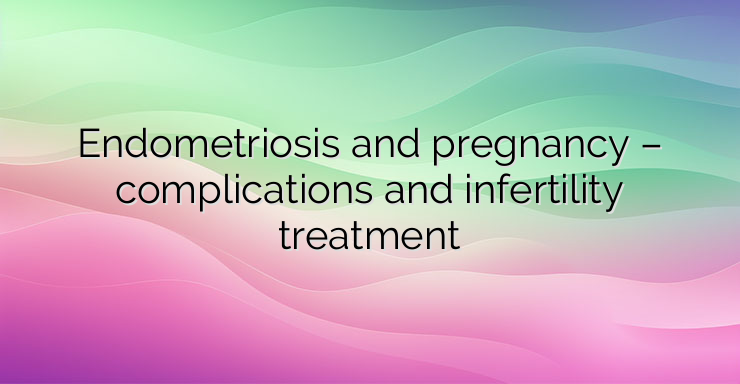Is it possible to get pregnant with endometriosis? Sometimes with endometriosis it is possible to get pregnant, especially when it is in the initial stage, but in general it leads to difficulties in conceiving and even to infertility. According to studies, 30 to 40% of endometriosis patients are affected by fertility disorders. In 20 to 50% of infertility patients, the leading cause is endometriosis. Why does endometriosis prevent conception? Chronic inflammation can prevent fusion between sperm and egg. Adhesions or blockages in the fallopian tube, which often result from endometriosis, can delay or prevent fertilization. The formation of endometriotic cysts in the ovaries can prevent the proper development of the follicles and impair the quality of the eggs. How to approach endometriosis and infertility? After being diagnosed with endometriosis, one of the ways to get pregnant is to resort to assisted reproduction methods, if necessary. Depending on the degree and type of endometriosis, as well as depending on the health status of both partners, the following therapeutic approaches can be taken: Ovarian stimulation, with or without intrauterine insemination; In vitro fertilization, sometimes preceded by a preliminary treatment based on taking estrogen-progestin contraceptives or GnRH agonists. Systemic surgical treatment of endometriosis is not recommended to improve the chances of pregnancy. However, this approach can be used in IVF failure and in moderate to severe endometriosis. Assisted reproduction in patients with endometriosis offers chances that are more or less similar to those of other patients without this disease who undergo assisted reproduction. Does pregnancy serve as a pause for endometriosis? It is believed that pregnancy can contribute to the relief of endometriosis. Changes in estrogen levels can cause endometriosis symptoms to worsen during the first trimester, then subside or even disappear by birth. However, endometriosis symptoms usually return when menstruation resumes after childbirth. Therefore, the disease is temporarily suppressed only during pregnancy. Is endometriosis associated with an increased risk in pregnancy? Endometriosis can promote certain complications during pregnancy. It has been found that there is an increased risk of: Early miscarriage – the risk is about 10% higher; Fetal prematurity and premature birth; Placenta previa; Complications of the birth process due to adhesions or consequences of previous interventions that complicate the birth. It is important to clarify that not every pregnancy is risky or associated with complications in patients with endometriosis, and many can have a successful pregnancy and give birth via vaginal delivery. References: https://www.passeportsante.net/famille/grossesse?doc=endometriose-grossesse-symptoms-risques


Leave a Reply